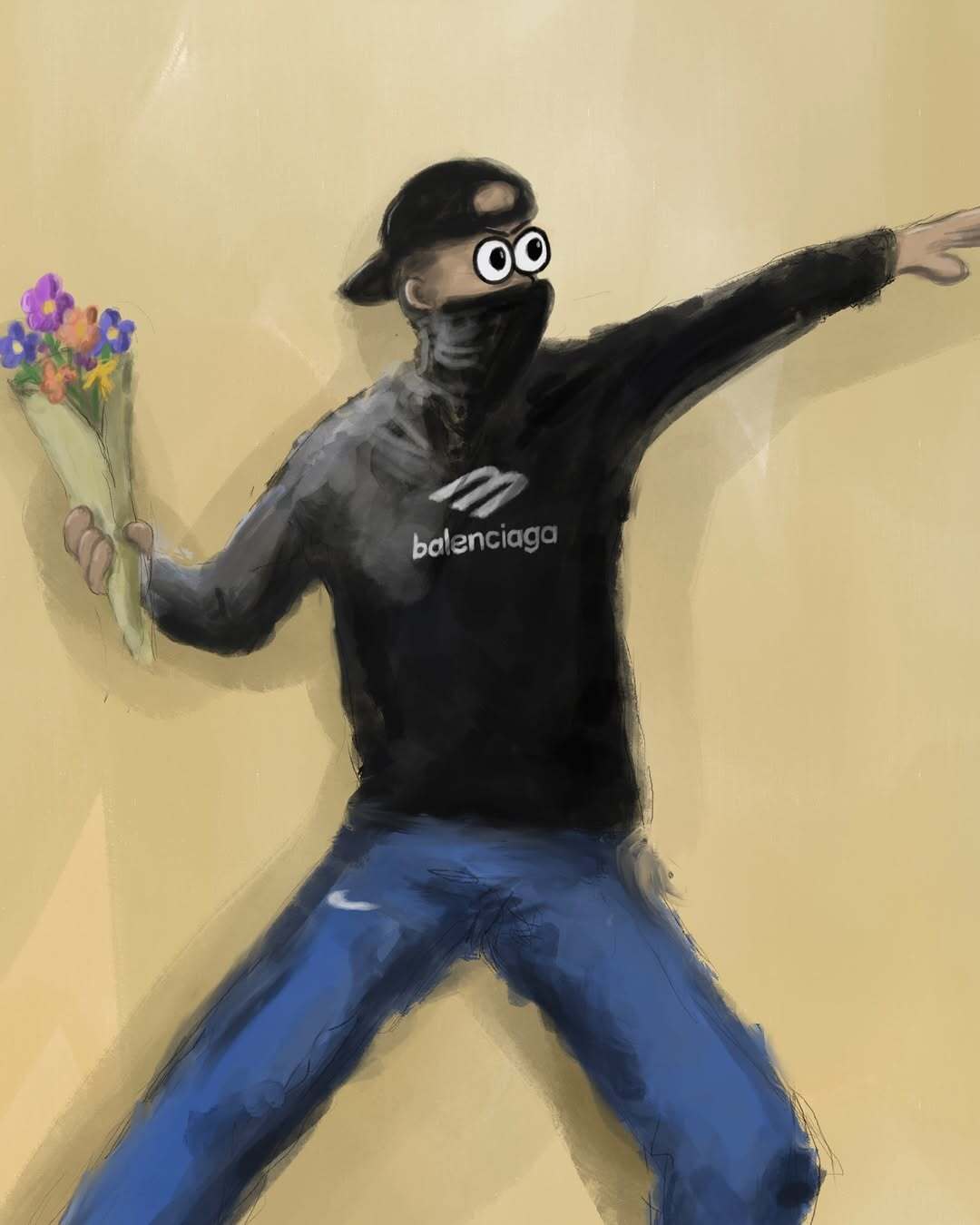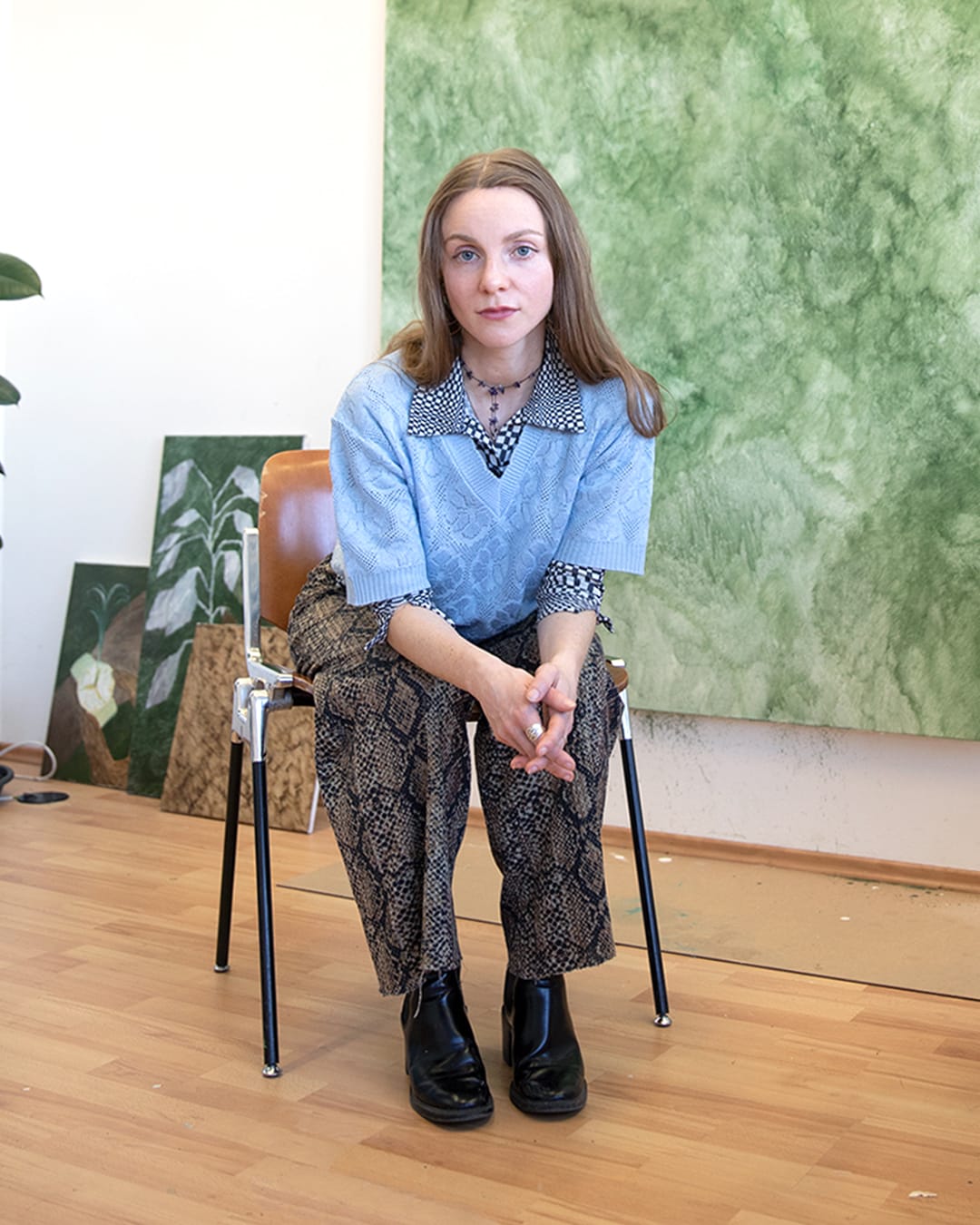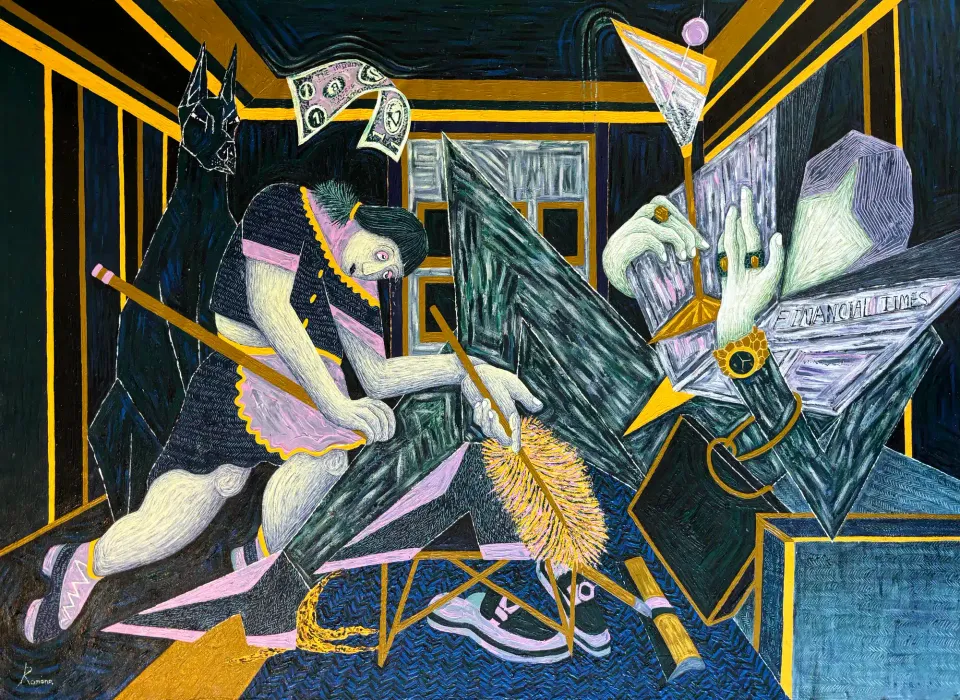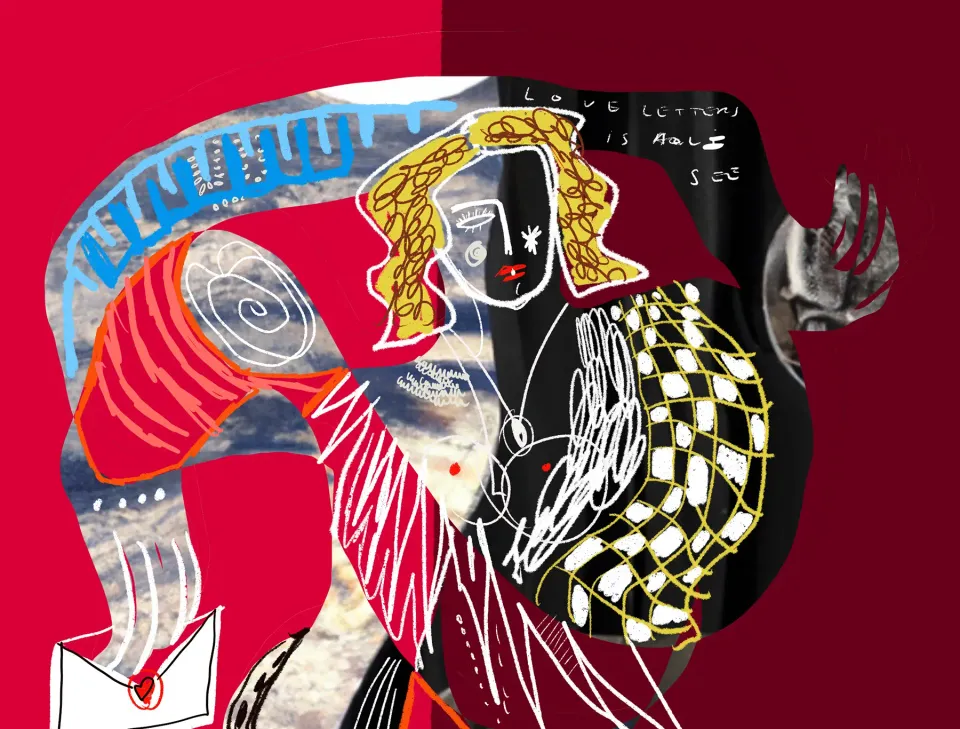A Master of Silence: The Art of Anna Lisei Math
Explore Anna Lisei Math's serene landscapes, where nature's forms create quiet spaces for introspection. Learn how her work contributes to contemporary dialogues on stillness and emotion.
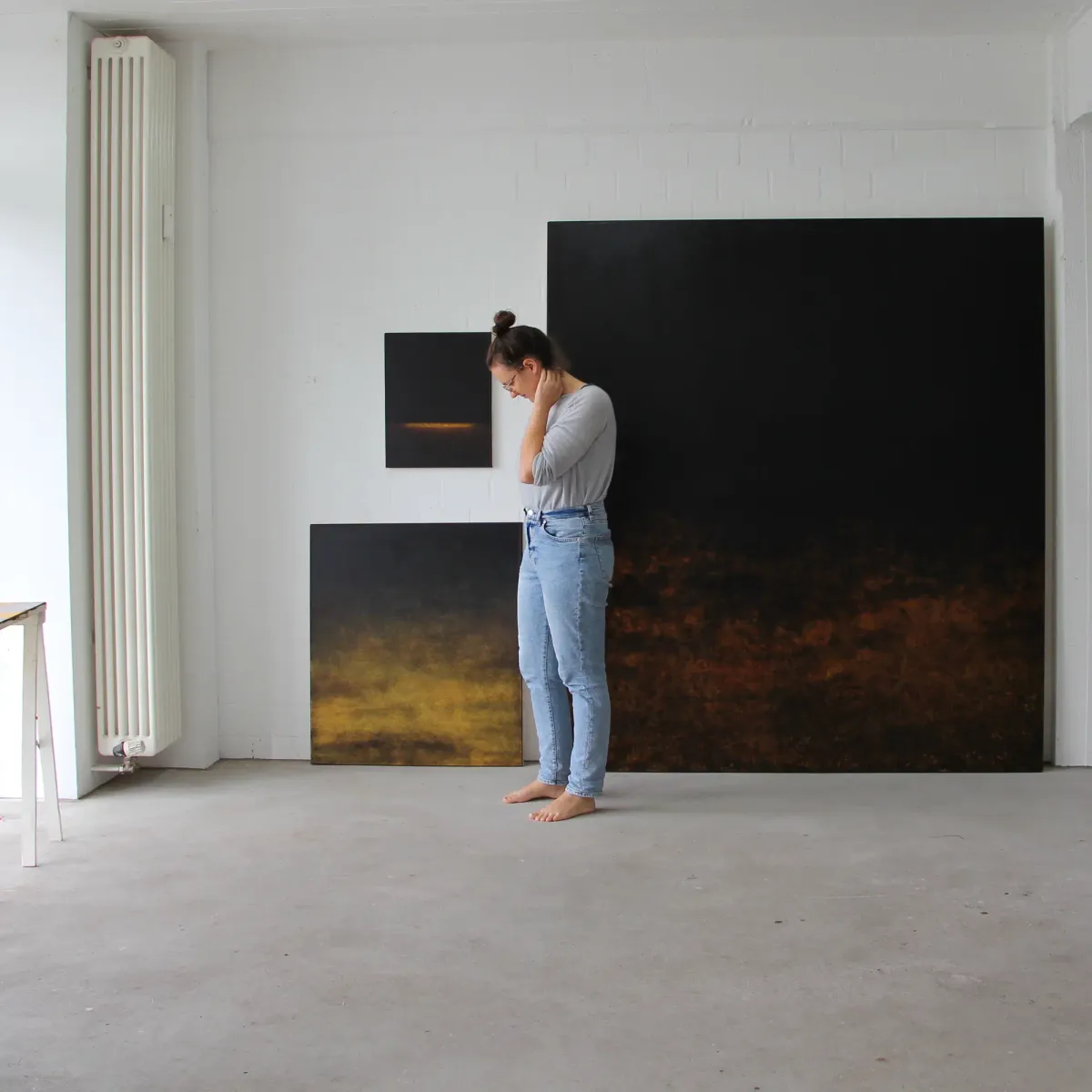
Anna Lisei Math: Exploring Serenity Through Nature’s Structures
In a world overwhelmed by a continuous flood of information, Anna Lisei Math’s work stands as a quiet retreat.
Her paintings offer viewers a space where time seemingly pauses, inviting introspection rather than demanding instant interpretation.
Math’s landscapes transcend their frames, inviting viewers into an atmosphere of calm and reflection—a rare escape from the frantic pace of modern life.
The artist’s work, which primarily consists of stylized landscapes, transcends traditional nature representation.
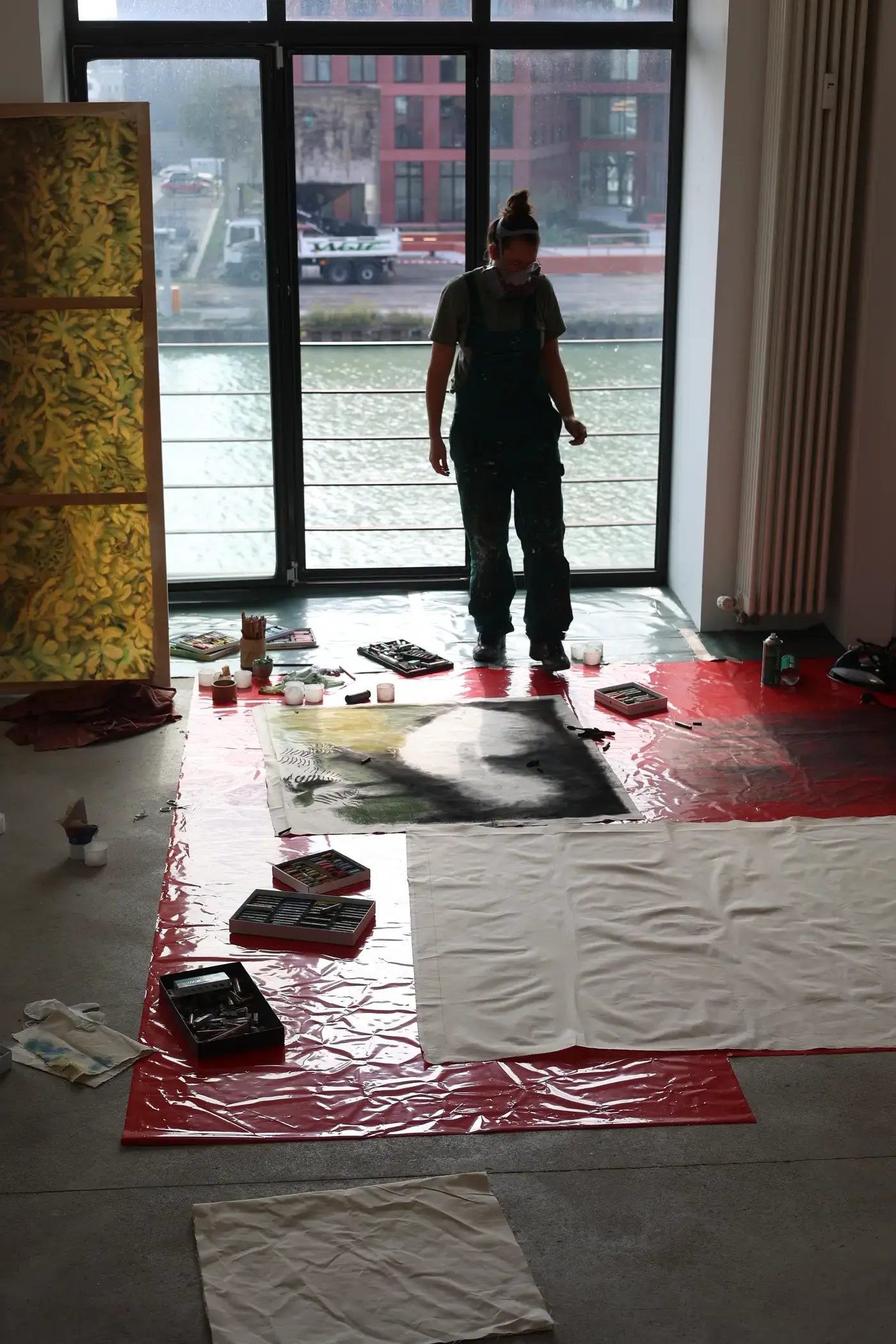
Her focus on texture, repetition, and form builds a visual meditation, a space for contemplation within the contemporary landscape of fast-paced visual culture.
Math’s landscapes are not grand, sweeping views but rather intimate snapshots, often devoid of human presence.
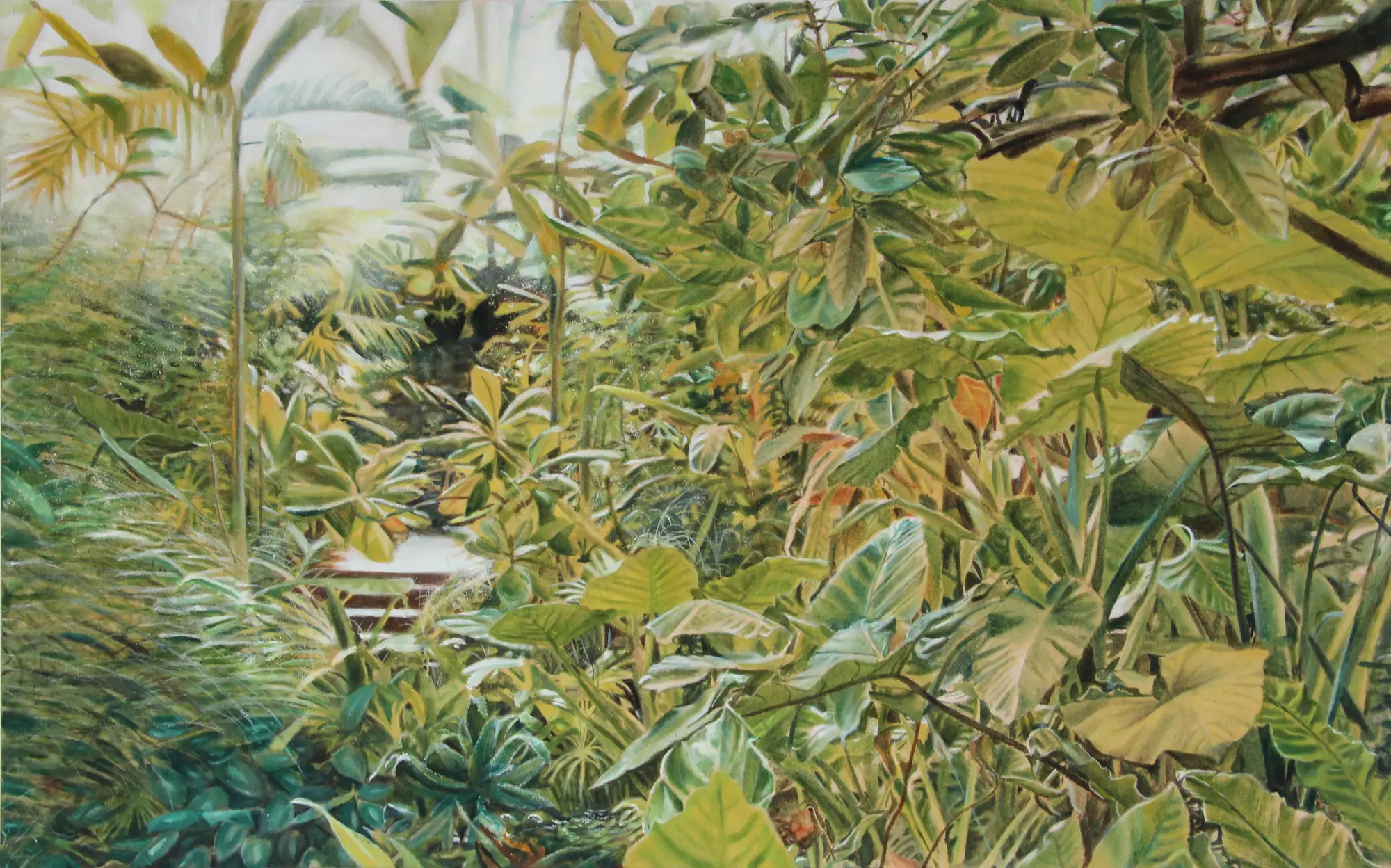
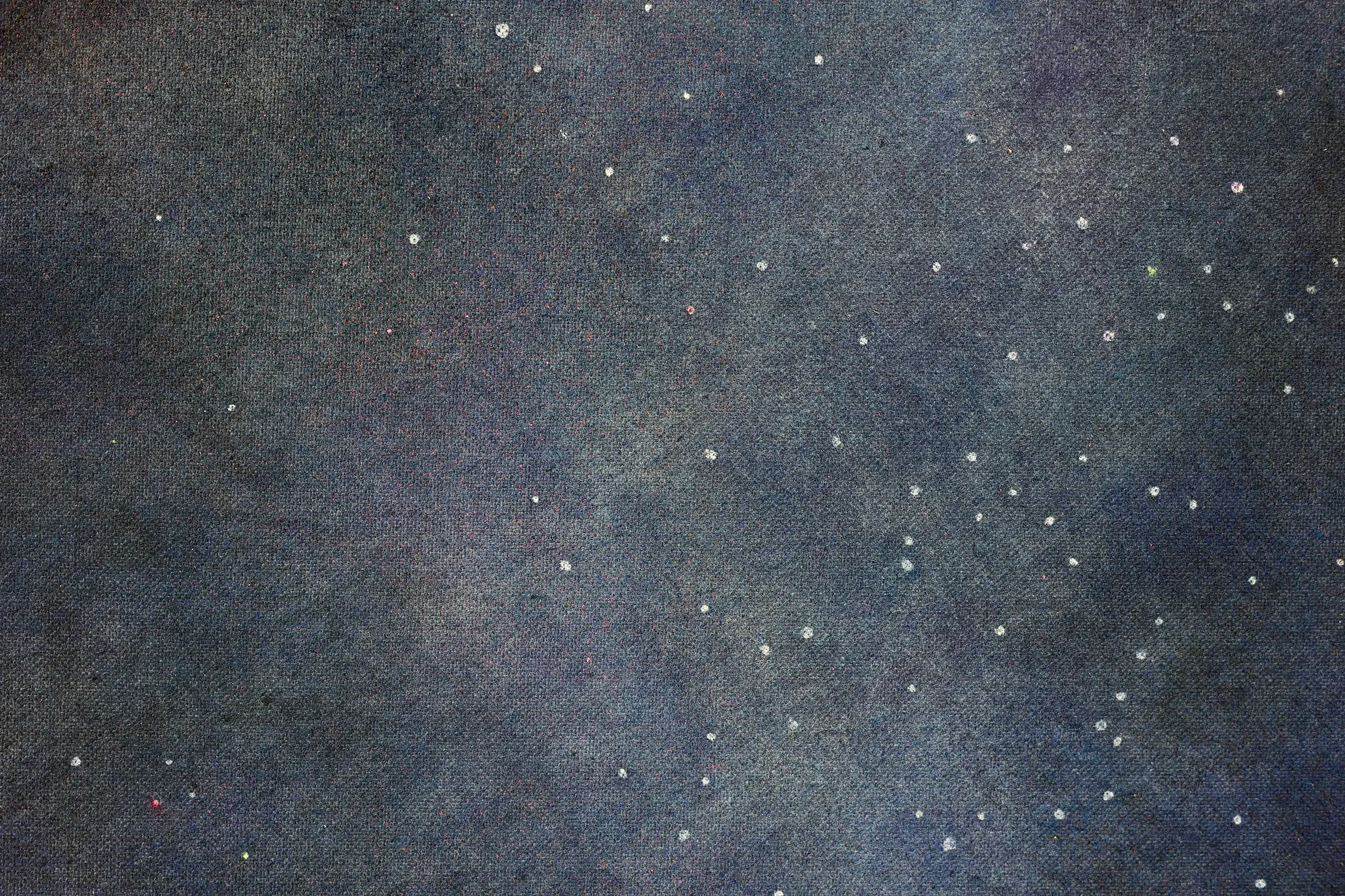
Through her use of repetition—whether in the clustered forms of trees or the rhythmic patterns of nature—she taps into something timeless, a universal longing for stillness.
In pieces like Where You Should Have Found Me (2023), the viewer is presented with a serene, almost surreal rendering of natural forms, yet there is no explicit narrative.
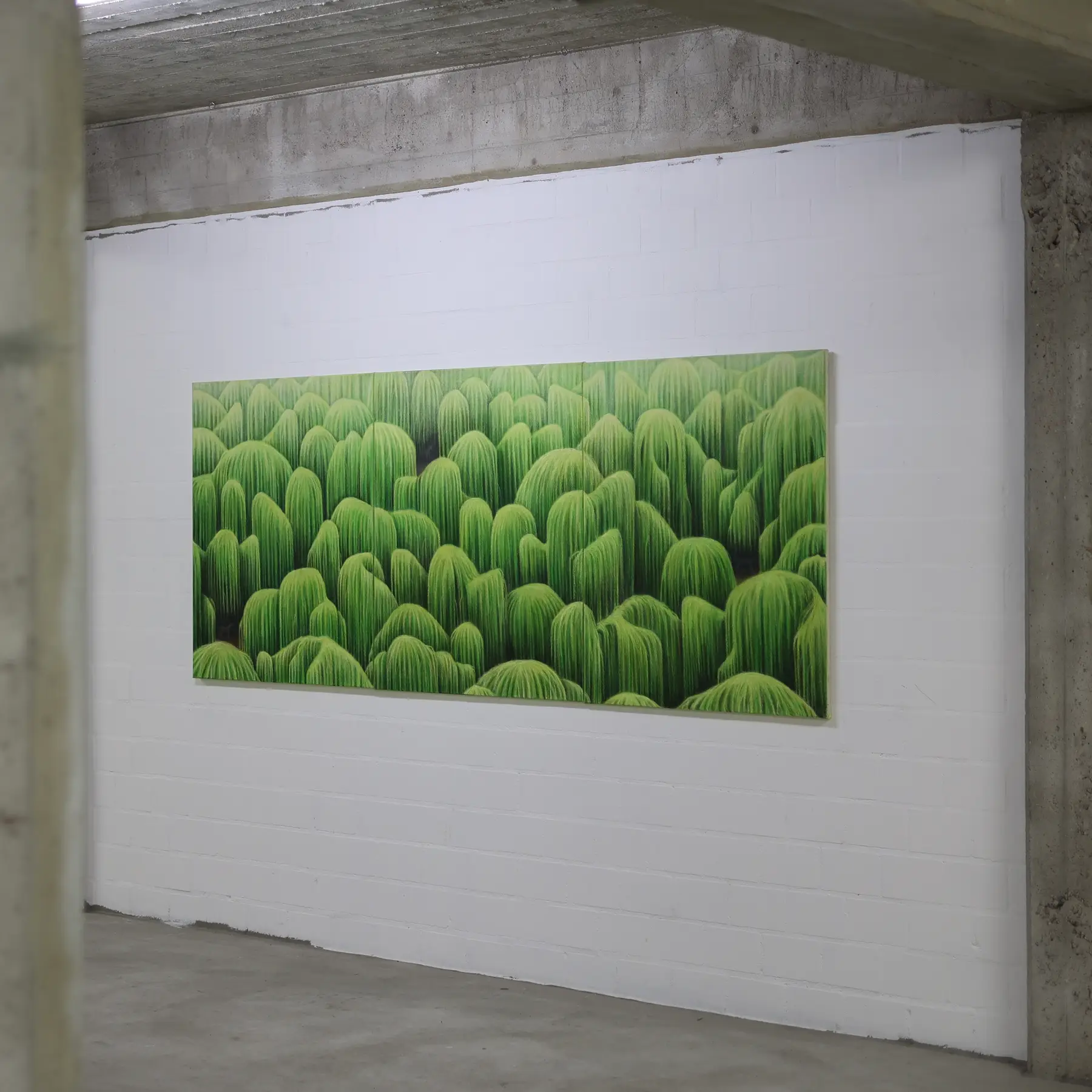
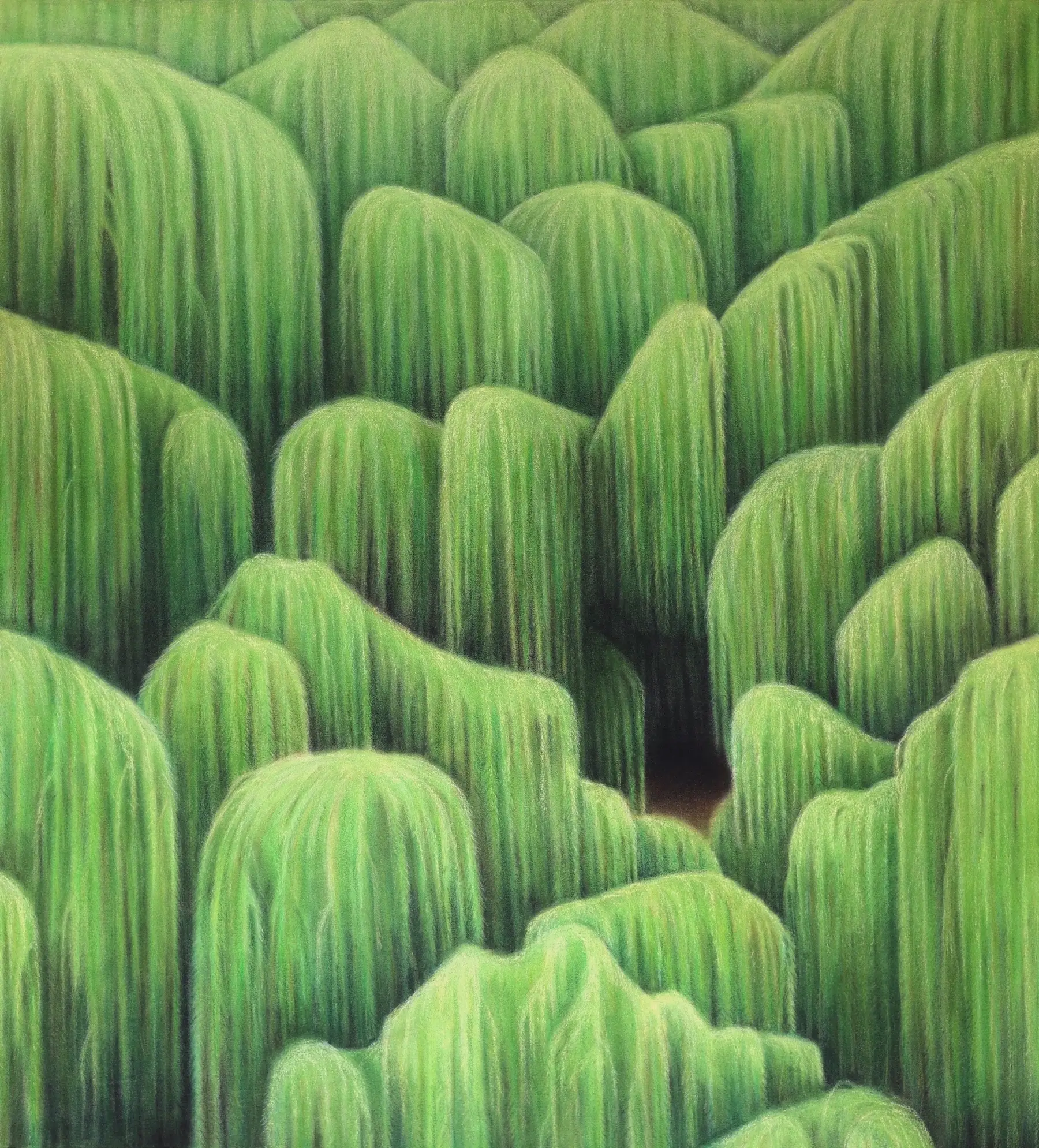
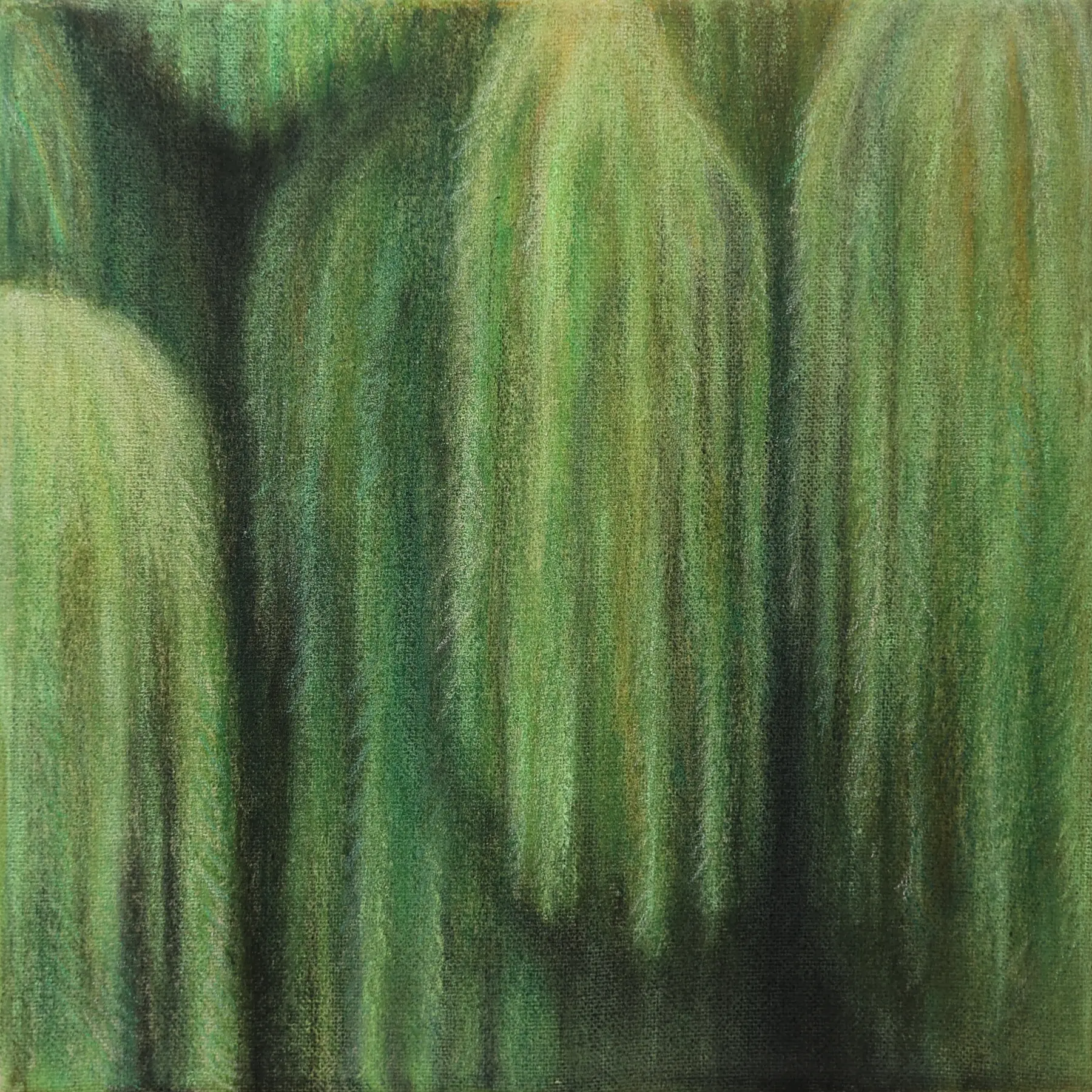
Anna Lisei Math: (Detail) Where You Should Have Found Me (2023) | Image Courtesy by the Artist
This intentional lack of action allows the mind to wander, letting emotions fill the void left by the image’s quiet simplicity.
The work creates an atmosphere where each form appears simultaneously static and dynamic, shifting in its meanings based on the viewer’s own experiences.
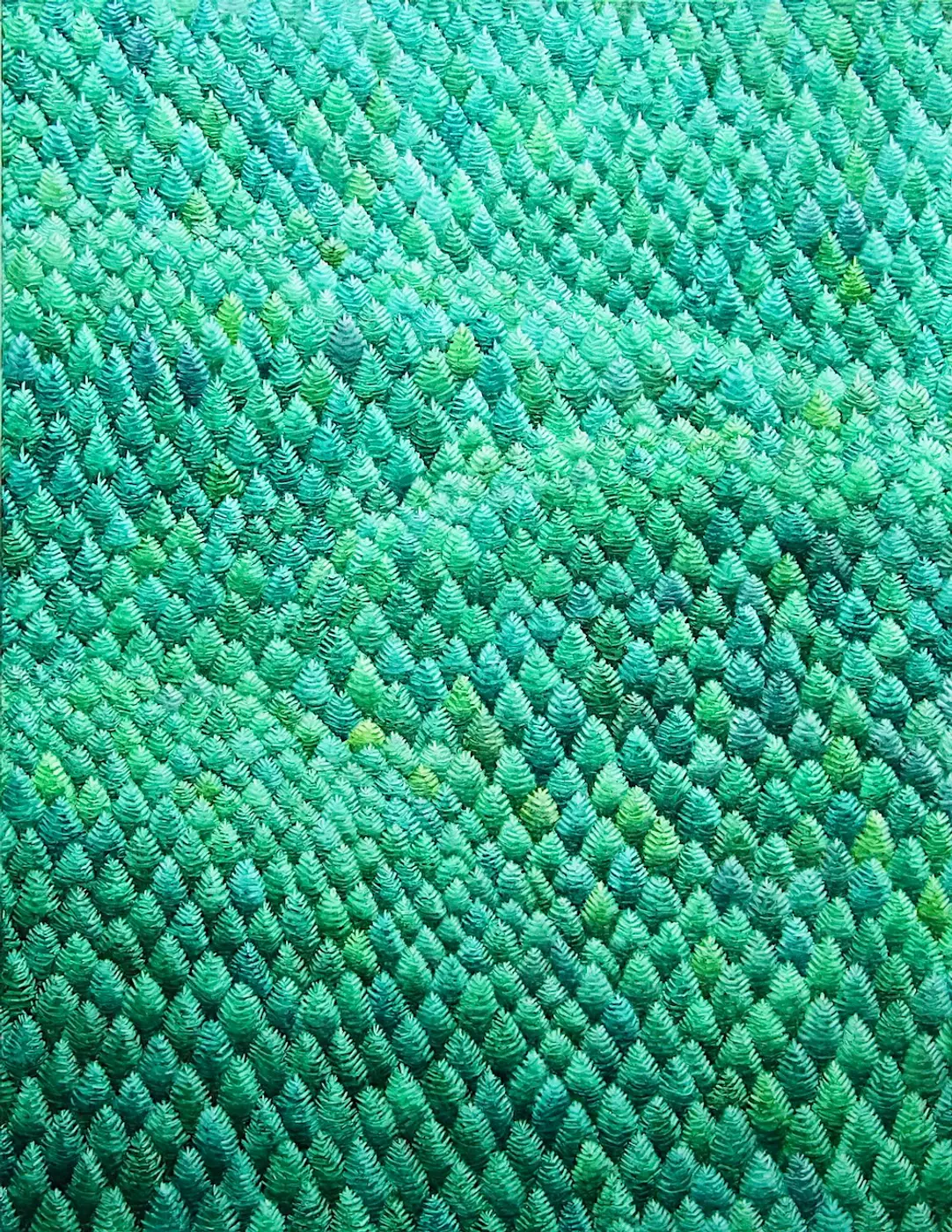
Math’s works are far more than landscapes—they are metaphors for internal states. In her piece Micro (2022), for example, Math uses densely packed green foliage as both a visual motif and a metaphor for human desires and longings.
The tight, repetitive brushstrokes mimic natural growth patterns, but the absence of a clear focal point suggests a loss of direction—a common sensation in today’s chaotic world.
This visual metaphor is further strengthened by her choice of palette, where variations in greens provide a sense of depth, while also evoking a meditative calm.
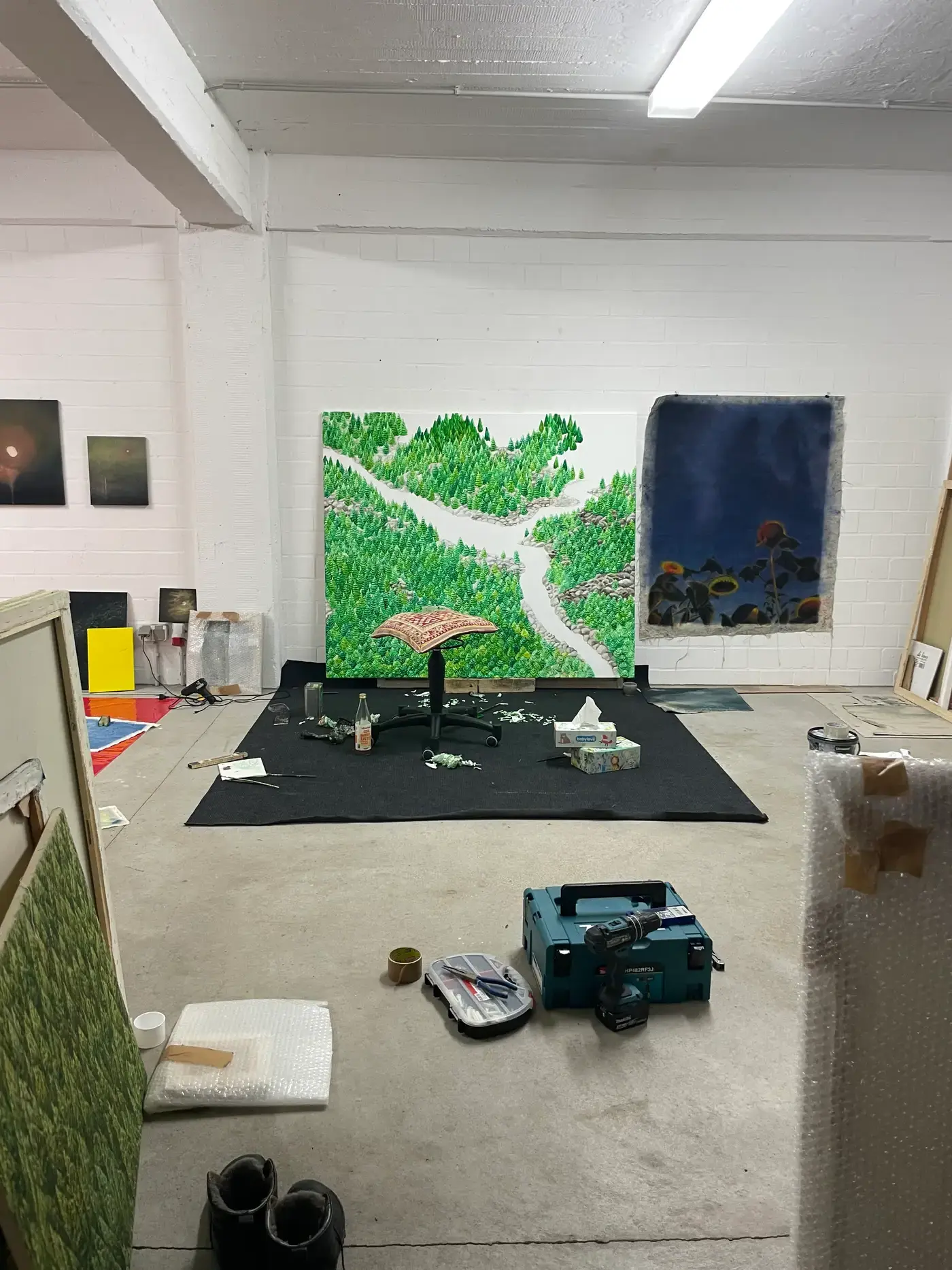
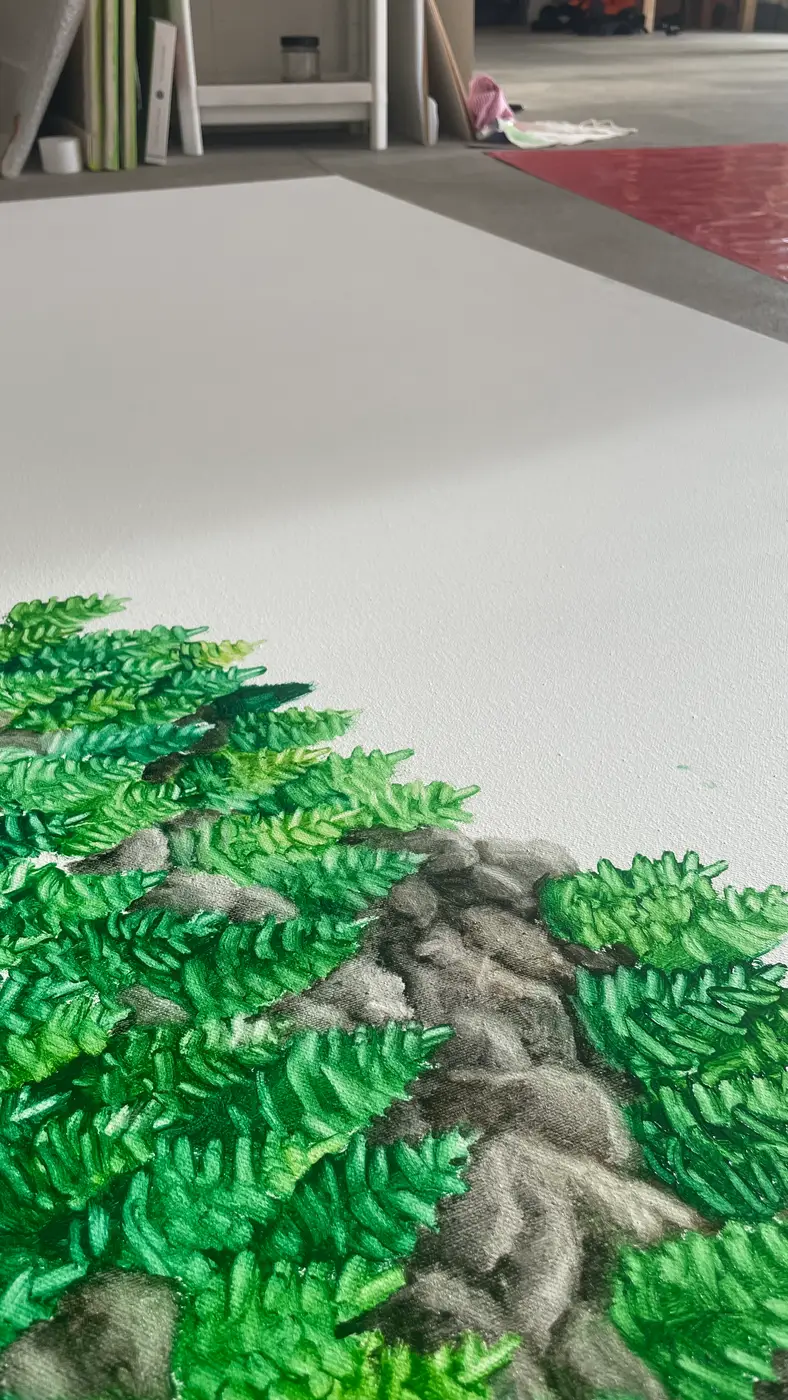
Anna Lisei Math: Studio and detail of work in progress, 2024 | Image Courtesy by the Artist
Similarly, her Volcano (2020), despite its fiery undertones, doesn’t erupt with violence but remains contained, almost dormant. The subtle tension in the painting symbolizes the human condition—still on the surface but brimming with unspoken energy beneath.

New Faces in Contemporary Art - Anna Lisei Math
By focusing on the subtleties of nature’s potential energy rather than the overt dramatics of a volcanic eruption, Math evokes an introspective dialogue about human resilience and emotional containment.
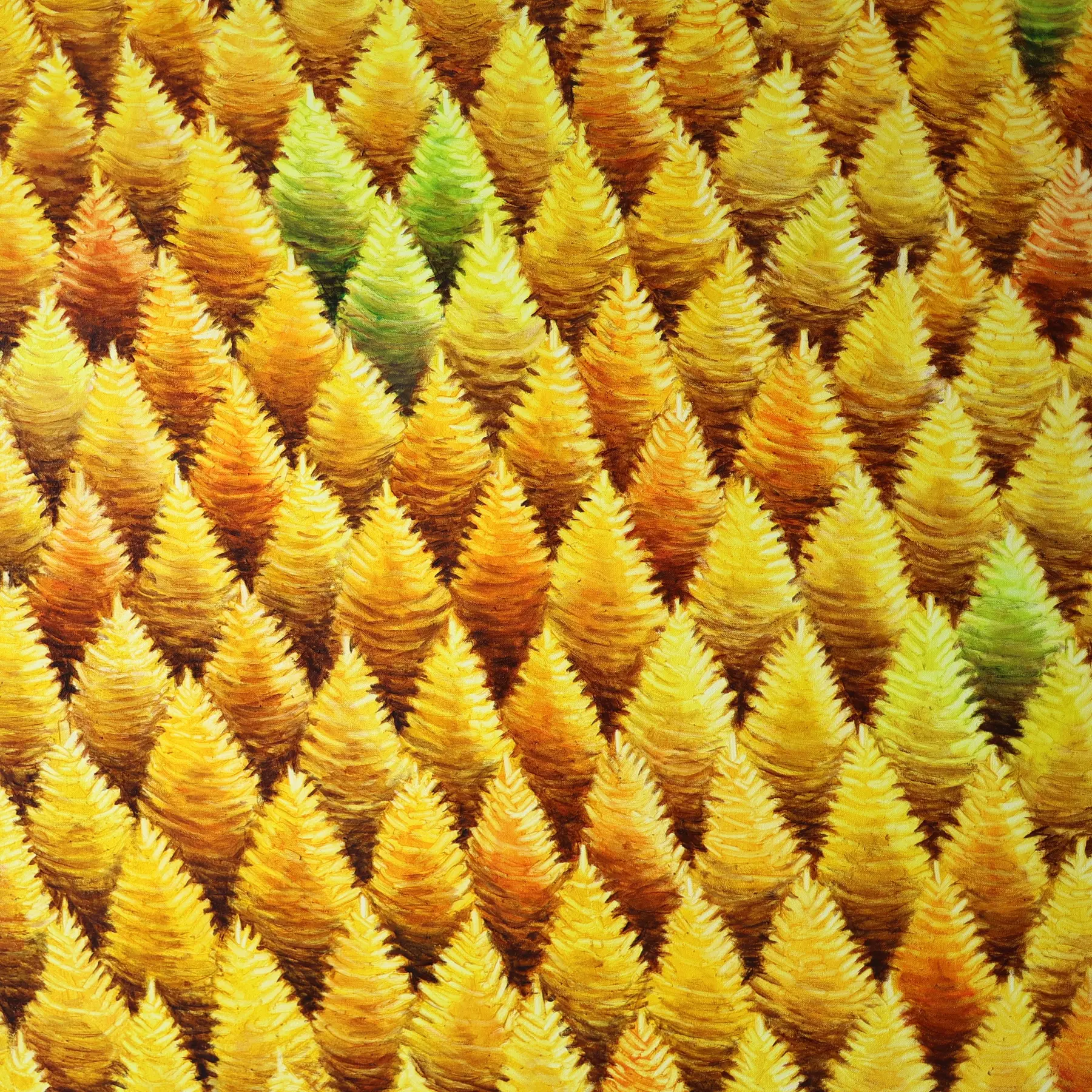
One of the most intriguing aspects of Math’s work is her ability to blur the boundaries between the physical canvas and the viewer’s space.
Her paintings, such as Where You Should Have Found Me, expand beyond their physical limits, inviting viewers into their quiet atmospheres.
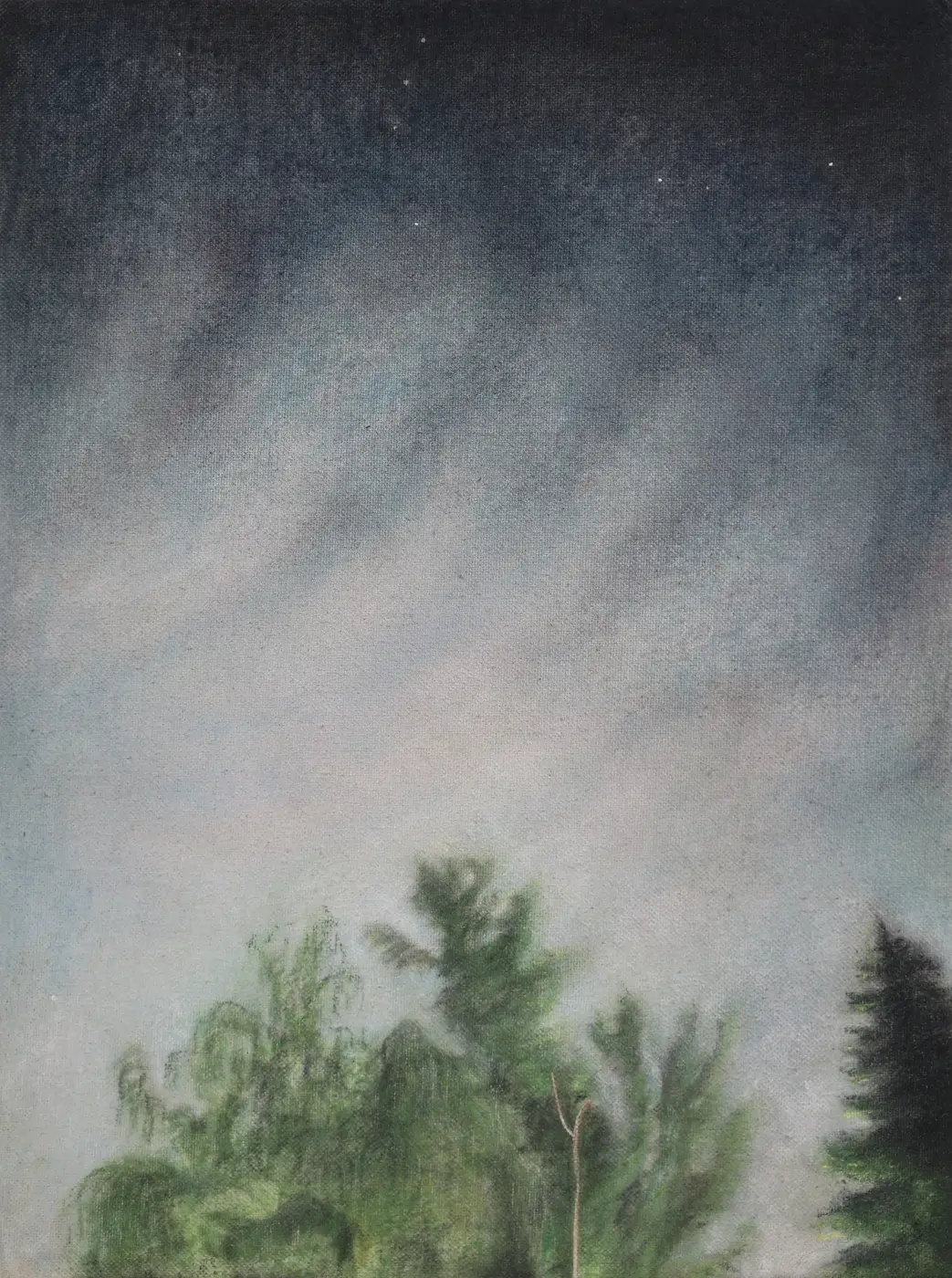
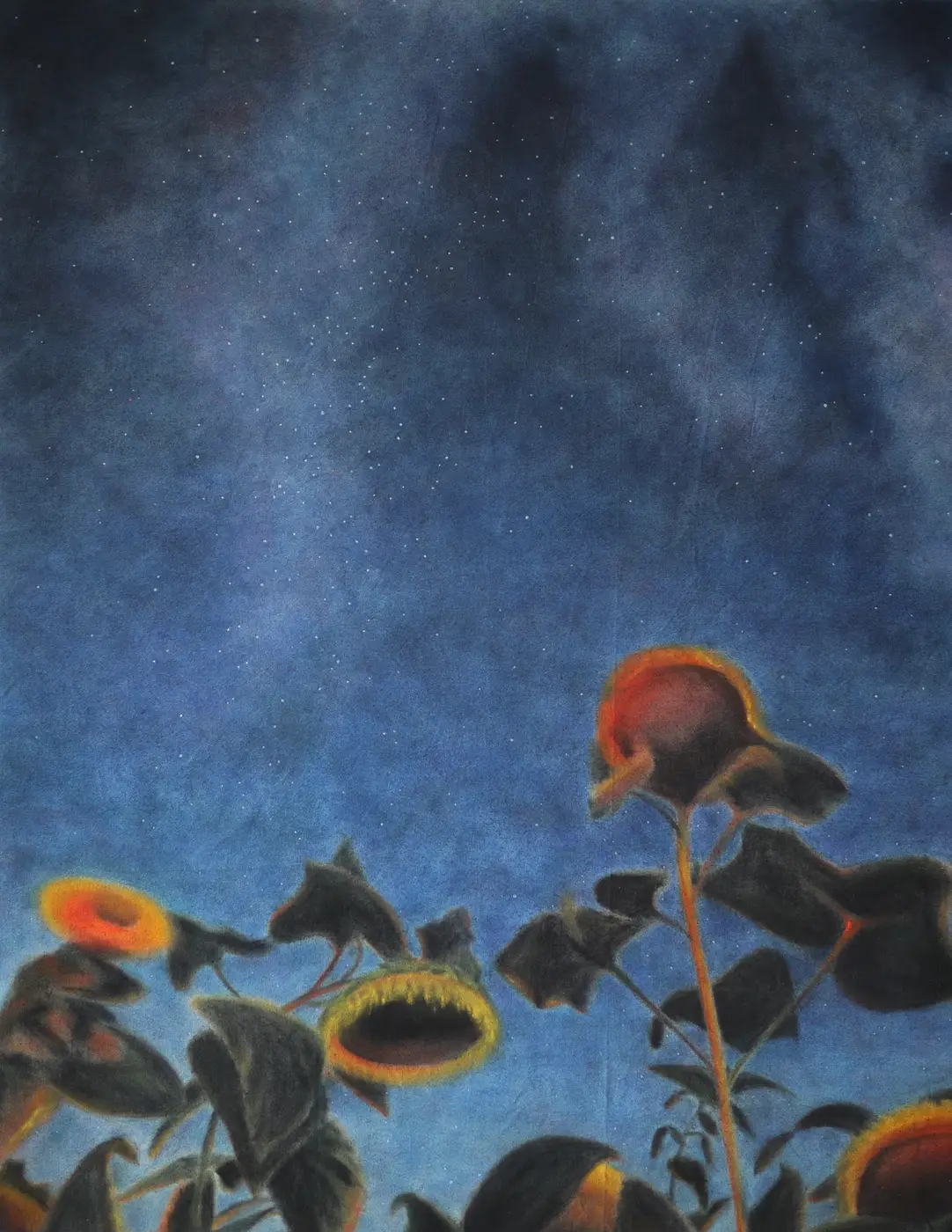
Anna Lisei Math: eft: untitled, 2024, soft pastel on unprimed cotton, 40 x 30 cm / right: untitled (sunflowers), 2024, soft pastel on unprimed cotton, 115 x 90 cm | Image Courtesy by the Artist
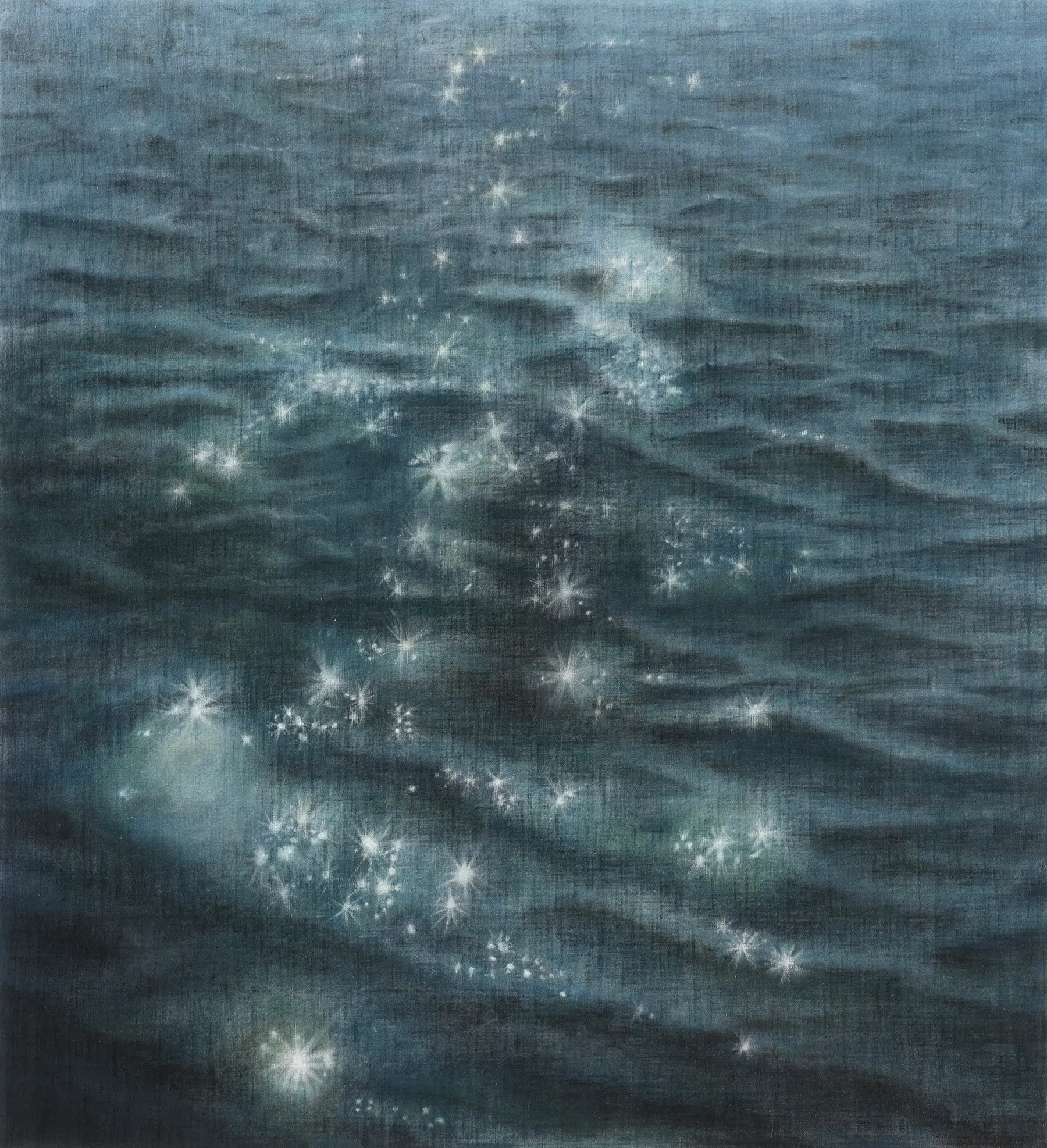
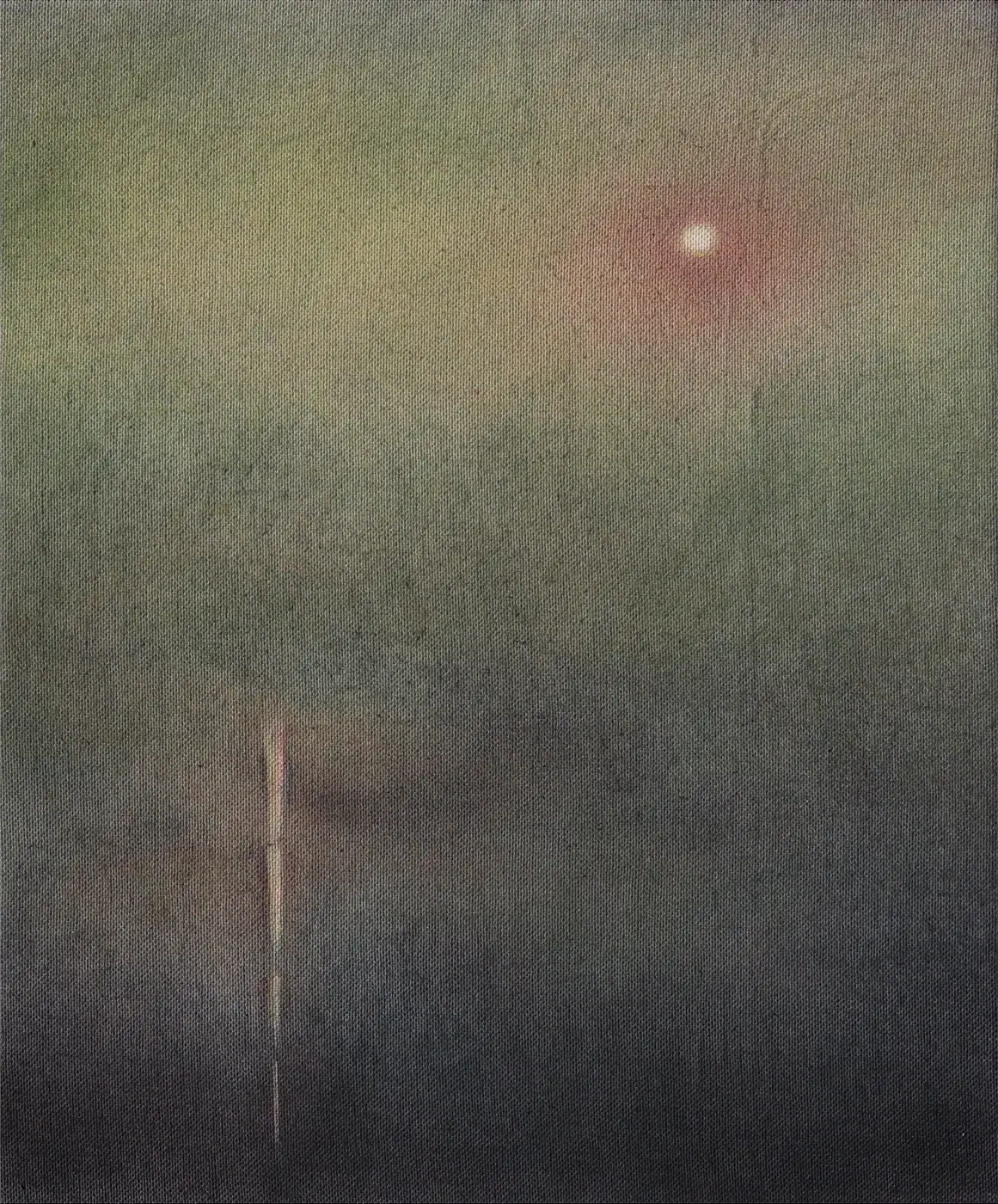
Anna Lisei Math:(left) untitled, 2024, soft pastel on unprimed linen, 55 x 50 cm (right) untitled, 2024, soft pastel on unprimed cotton, 35 x 29 cm | Image Courtesy by the Artist
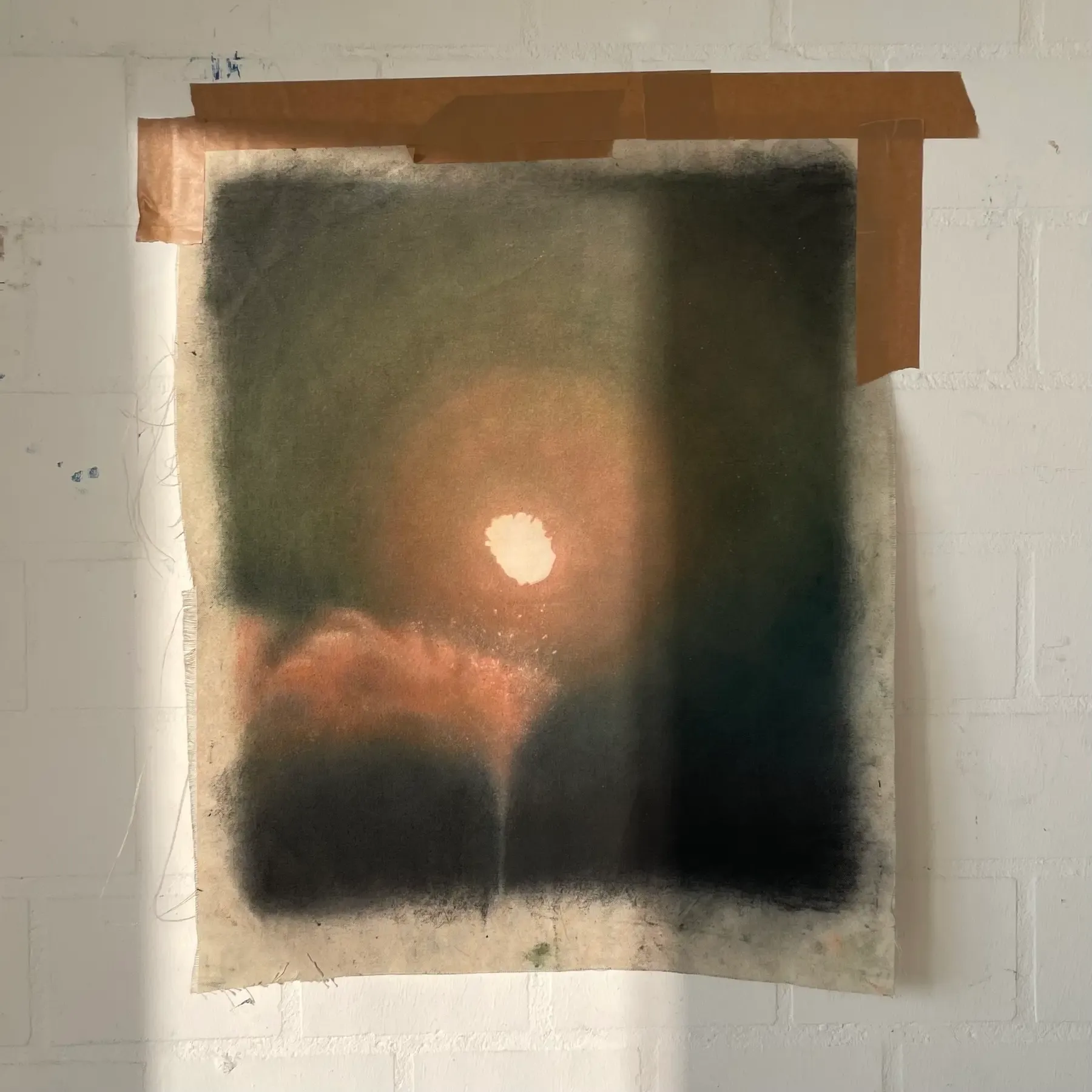
The landscapes seem to stretch endlessly, invoking a feeling of longing for something just beyond reach.
Her art creates a dialogue with the viewer’s own internal landscapes, sparking feelings of nostalgia or yearning for connection.
This blurring of boundaries, both literal and metaphorical, plays with the idea that the experience of art is not confined to the frame but extends into the personal emotional sphere of the observer.
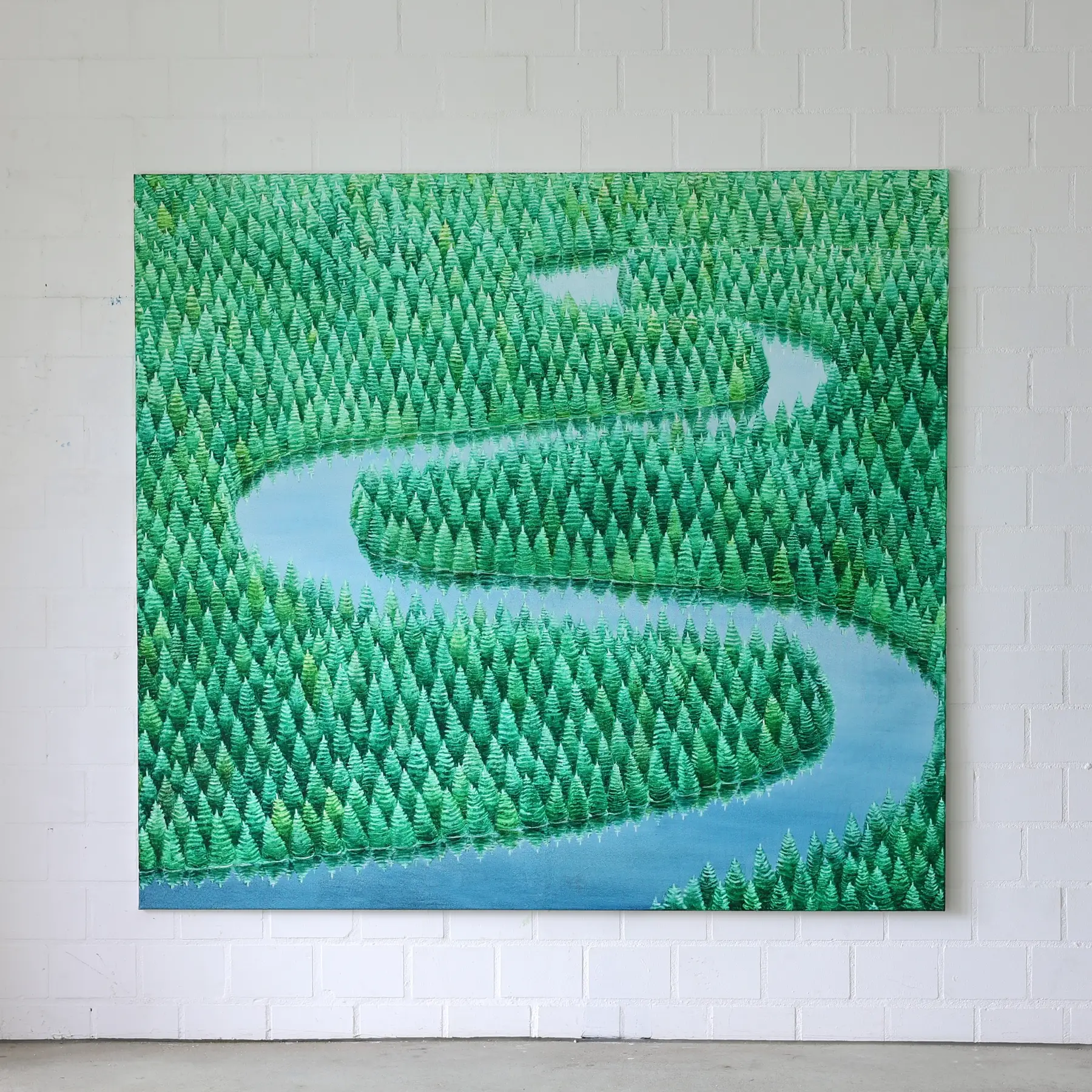
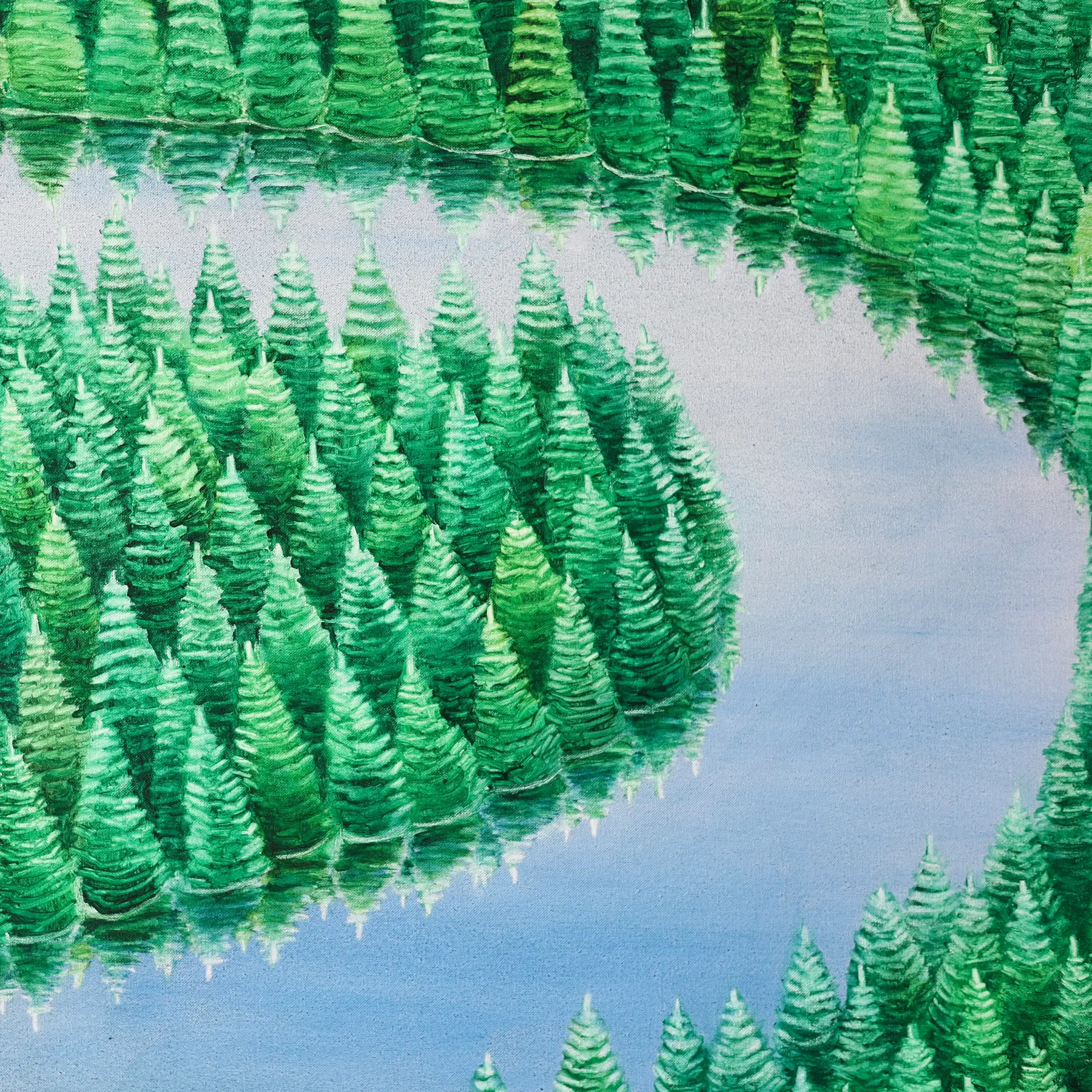
Math’s use of organic forms and her ability to evoke stillness align her work with current trends in contemporary art that seek to slow down the pace of consumption and offer deeper emotional engagement.
Her style parallels the resurgence of the ‘slow art’ movement, which challenges the quick consumption of art through digital platforms by offering something that requires time and reflection.
At the same time, her work also connects with ongoing dialogues about the role of nature in a post-industrial society, where many artists turn to organic imagery as a way of reclaiming the natural world from technological encroachment.
While some contemporary artists may lean on explicit social commentary, Math chooses a subtler approach.
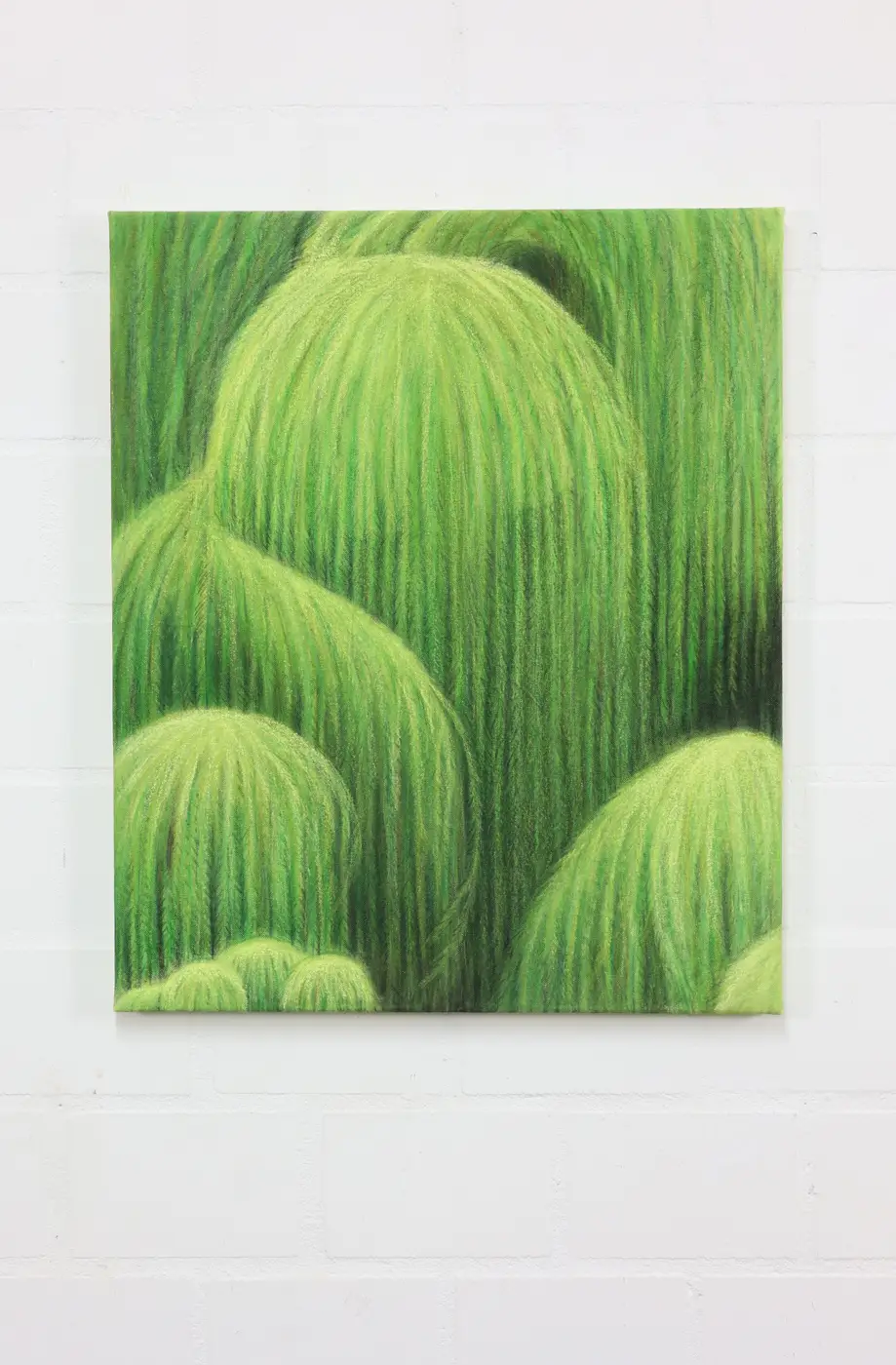
Her works open up spaces for personal reflection rather than dictating a specific narrative or moral stance.

The lack of human figures or overt social symbols allows viewers to project their own meanings onto the landscapes.
This universality gives her work a timeless quality, making it relevant in both contemporary and future dialogues on art and nature.
In Essence
Anna Lisei Math’s work embodies a serene refuge from the pace of contemporary life, where stylized landscapes and repetitive natural forms invite a slow, contemplative engagement.
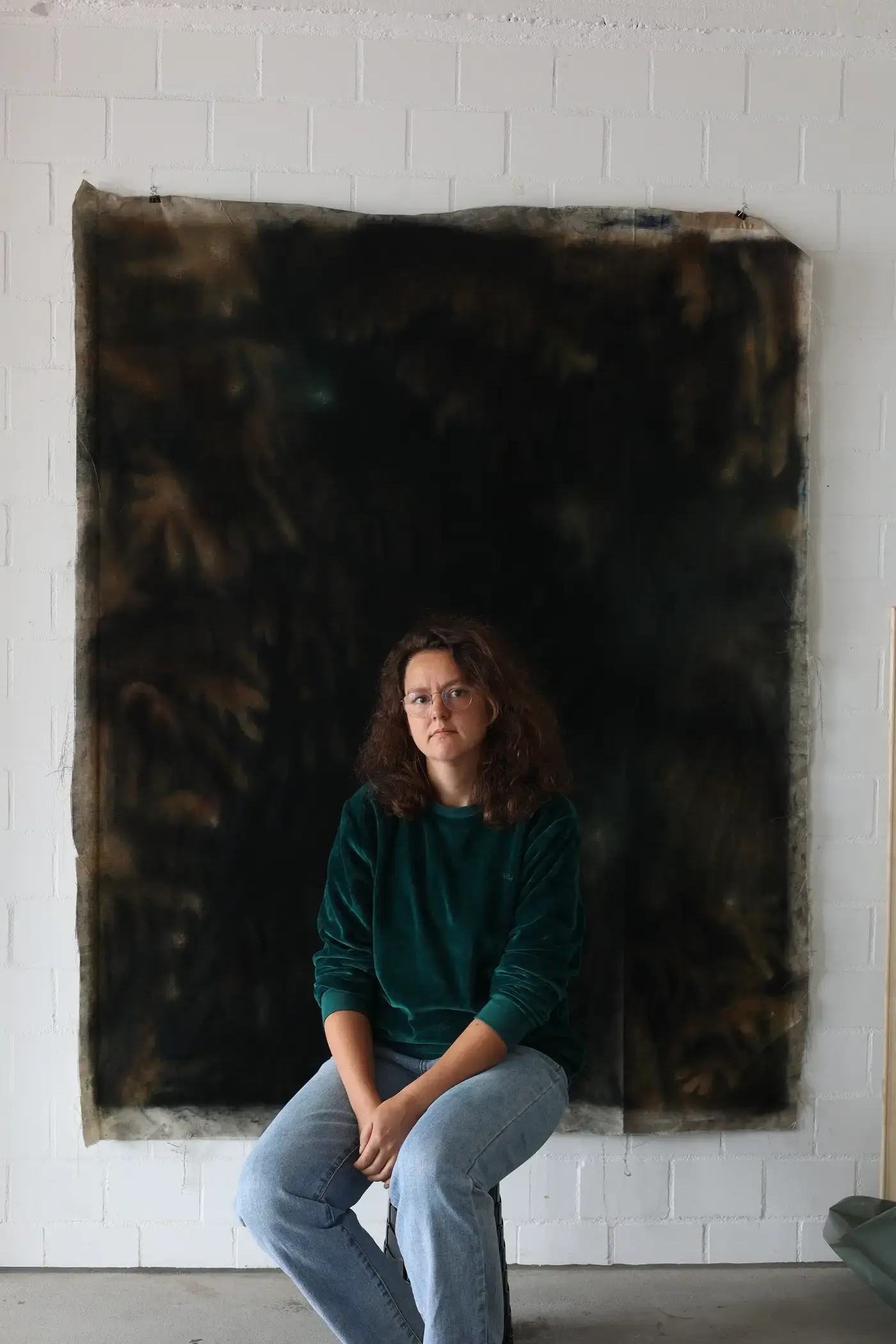
Her paintings do not demand instant interpretation but instead encourage viewers to linger, letting memories and emotions surface gently in the quiet of the canvas.
Math’s subtle yet profound approach—a fusion of minimalism and emotional depth—speaks to a universal yearning for stillness and introspection, while also resonating with larger cultural dialogues about our relationship with nature and self.
Through her art, she offers a space for quiet observation, revealing the understated beauty of stillness in a world dominated by rapid change.
Visit, discover, and support Anna Lisei Math on Instagram and her brand-new website.


